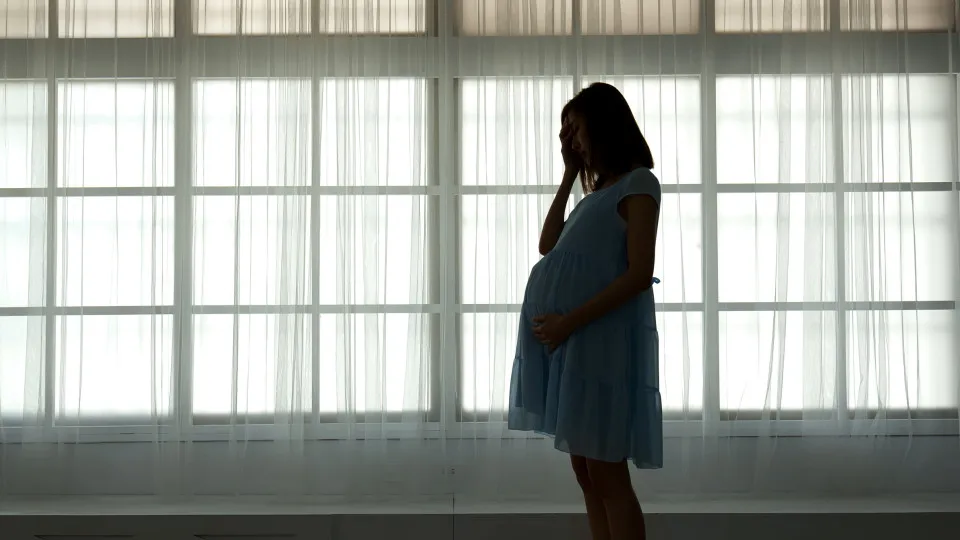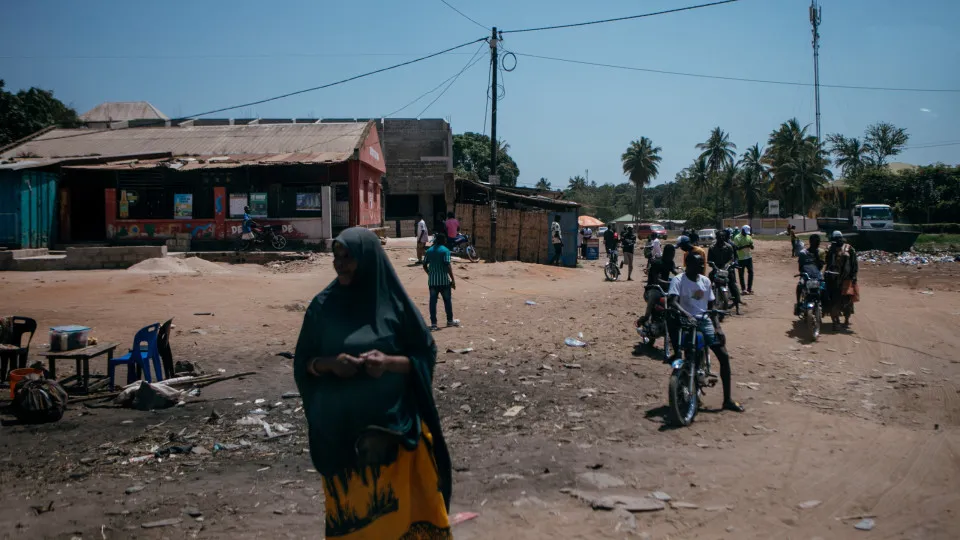
The case of a baby abandoned at the doorstep of the Firefighters Barracks in Leiria, early Sunday morning on October 19, has reignited the debate regarding child abandonment and the support provided to women during pregnancy and postpartum.
Many have criticized the mother, casting judgments, while others emphasize the need to combat stigma.
Specialists remind us that most women who abandon their newborns do not make this decision lightly. When they sought help, it was unavailable. They were not listened to. No one extended a hand. They never received support.
The immediate step to be taken—alongside caring for the baby—is to understand what led to this act, to listen and comprehend the woman involved, as explained by psychologist Tânia Correia, founder of Clínica 3 M’s, to Notícias ao Minuto.
The specialist in conscious parenting, family relations, children, and adolescents is convinced that “various factors” are associated with such abandonment situations, yet notes, “the most common is compromised mental health.”
Depression, illnesses, and lack of companionship and support
“One scenario could be postpartum depression that often starts to develop during pregnancy. Following childbirth, with hormonal changes, combined with the nature of the birth itself—something worth discussing—various factors can push a woman to feel incapable of caring for her baby. She may believe the baby is better off without her, leading to such abandonment scenarios,” stated Tânia Correia, indicating even more complex situations.
“There are more severe pathologies, with graver implications, like psychosis. Women can become delusional, thinking, for example, that the baby is meant to cause harm. They may then abandon or, sadly, escalate to even more serious harm,” mentioning incidents where “homicides” occurred under these conditions.
Tânia asserts that these are “the most common scenarios.” The lack of support from a partner, family, or friends is also impactful.
“It’s one of the main factors. Many of these women felt detached from their families from a young age. They had little connection with their parents. The birth of a child exacerbates this lack of bond, making it difficult to connect and feel the love that relationships provide. Many lack a support network, or if they do, it is poor in number and relational quality,” the psychologist recalled.
Absent (or negligent) parents, “friends who are not truly present,” and “partners who are either uninvolved during pregnancy or involved very negatively” are implicated.
“Many women still face humiliation during pregnancy. Constant comments on their bodies and lost femininity persist,” she revealed, emphasizing the critical role of health professionals in diagnosing these vulnerabilities.
“We need to address the role of health professionals in these cases. Many women visit health centers, and excessive concern about weight gain is prevalent. But nobody asks about their feelings genuinely. It shouldn’t be a checklist item; it requires true understanding,” she cautioned, highlighting that “we now have tools, questionnaires to assess women’s mental health,” yet “many professionals still overlook this aspect.”
Abandonments “Could Be Prevented”
“Sometimes, these scenarios could be prevented if they were acknowledged early.”
On a larger scale, suggests the specialist, “there should be state mechanisms to provide responses” to pregnant women, as health professionals might recognize an issue but lack the action path.
“They don’t know where to refer or might see a psychologist referral result in a session available only in a year. By then, the baby is long-born. These women feel abandoned—from family relations, friendships, the state, and healthcare professionals. It’s a lonely place, so the question should be: what was done to keep the baby with the mother? Not why she abandoned it,” she noted, emphasizing the importance of society valuing the mental health of pregnant women as “essential” as physical health.
“If a pregnant woman’s blood pressure is exceedingly high, we wouldn’t shrug it off. Altered test results wouldn’t be ignored either. So why sweep mental health concerns under the rug? There needs to be a societal shift in perception,” as Tânia Correia reminded Notícias ao Minuto, “often, a neighbor might have seen the woman downcast, a colleague noticing she wasn’t bonding with the baby.”
“We all need to be aware and attentive to this issue,” she warned.
Creating mechanisms to support expectant mothers who feel abandoned could be vital in reducing newborn abandonments, which reached 50 cases over six years. “The State should provide more services;” society needs clear support avenues and solidarity; the National Health Service needs more psychologists, especially those specialized in perinatal care.
When any problem, or “alarm signal,” is diagnosed during pregnancy, “there should be heightened attention from the moment of birth or its approach.”
“There needs to be availability for these women. Close support is critical. Sometimes, the state must create a support network to compensate for what they lack otherwise,” the psychologist added to Notícias ao Minuto.
Feeling “Incapable of Caring for the Baby and Unheard”
To Tânia, numerous women feel “no one understands them” and that “they can’t rely on anyone.” Their emotions, fears, and doubts were dismissed by “commonplaces” and “clichés.”
“Of course, you can take care of your child,” and if it’s a second child, “if you managed one, you can handle two,” are examples of damaging remarks to someone already fragile.
For Tânia, for some women, being heard and embraced, “creating space for dialogue,” could prevent extreme situations like the incident in Leiria last Sunday.
“We cannot romanticize infant abandonment, but we also cannot judge. Behind many of these women is despair. A feeling they won’t be the best for their baby. Some cases stem genuinely from love and concern. Love being the admission they’re not the best for this child, lacking the capacity to provide what it deserves,” she noted, herself an author.
Clínica 3M’s has helped “several mothers reverse the abandonment process.” Consequently, for a woman to care for a baby, “she must first care for herself,” and “many are completely detached from themselves, unfamiliar with being cared for, cherished, or supported.”
Thus, Tânia explains, initial steps include determining whether “medication and counseling are needed or if guidance without medication suffices.”
From there, support the woman in being “her caregiver, viewing herself differently, knowing herself. Understanding who she is,” as “many women haven’t the faintest idea who they are.”
“They spent years in autopilot, meeting challenges alone. Simply having someone supporting is often a unique experience. They never knew the comfort of support. Of being seen and having someone believe in them,” the specialist stated.
“Giving a Strong Hand and Holding This Woman”
Professionals endeavor to dismantle their life stories, understanding parental bonds and past relationship dynamics.
The next challenge arises as women regain balance—initial child custodial institutions require evidence of their caregiving ability—when visiting their children, they find, “they’d be better with them than there.”
“The months they visit but leave without them when finally open-hearted to love, they suffer massively. It’s incredibly harsh. During this time, psychological support must provide a strong grasp to prevent relapses into guilt and pain from their child’s placement,” cautioned the psychologist.
And the Father? Where Is He?
In child abandonments, society often fingers only the mother. “The notion persists that she alone bears the obligation to want the baby and thus failed.” Rarely is the father blamed, often perceived merely as support. This outlook must change, as Tânia Correia emphasized to Notícias ao Minuto, “both facilitated the abandonment.”
Indeed, “the father is frequently absent or negligent early on and the catalyst for the woman reaching that point.”
3M’s encounters many women whose partners respond to pregnancy announcements with “you’re on your own.”
In extramarital instances, some accuse them of “ruining their lives.”
Caring for Abandoned Babies Requires Extra Attention: Skin-to-Skin Contact and Work on “Belonging” and Bonds
Despite their tender age, abandoned newborns can bear abandonment trauma lifelong. To avoid this, they need more than shelter and food; they need warmth and care.
“Literature has shown over the years that rejection, even during pregnancy, is felt by the baby through the mother-baby connection. An abandoned baby may carry lifelong bonding imprints. Maximum skin contact in early days can mitigate this. Such care enhances belonging and counteracts abandonment feelings,” explained Tânia Correia.
Apart from the initial care, efforts must be made with future caregivers to lessen these tumultuous life beginnings’ scars on memory, body, and mind.
“Ideally, support future caregivers from the start. Foster parents must understand and receive guidance to strengthen belonging vibes, crucial for emotional connection and prevention of abandonment feelings. Working on these elements must begin with the adults from the start.”
According to Jornal de Notícias, over six years, 50 babies were abandoned in Portugal either at birth or within the first six months. These dire situations stem from mothers’ severe distress with no visible alternative.
The most recent occurred last Sunday in Leiria. A 27-year-old nurse left her newborn son, less than 24 hours old and still with the umbilical cord, at a firefighters’ station.
Inside the bag with the baby were diapers, a blanket, and milk. The boy was warm and well cared for. Surveillance cameras captured her hesitating in tears before leaving.
Correio da Manhã reports the woman, despite being charged, visits her son and may even retain custody.




